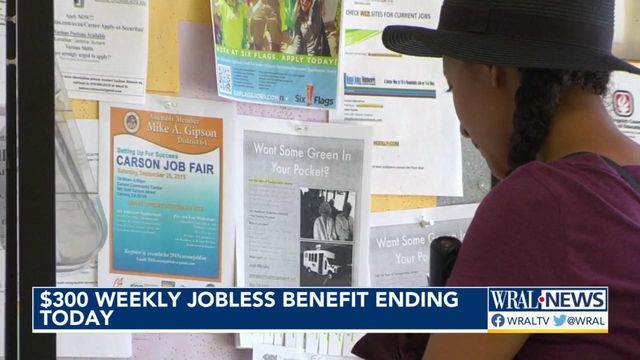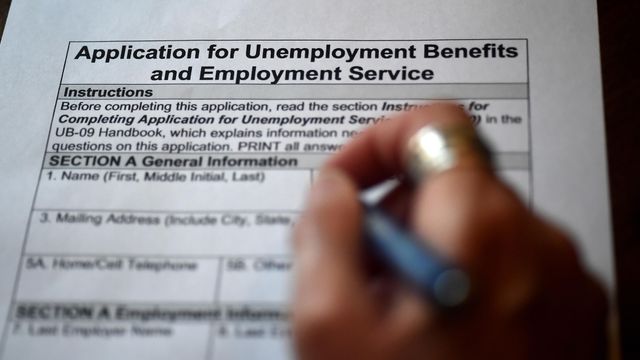Weekly jobless benefits of $300 end Monday, impacting many North Carolinians
Federal unemployment benefits related to the coronavirus pandemic, which have pumped more than $10 billion into North Carolina over the last 18 months, end Saturday.
Posted — UpdatedThe federal government is ending those extra payments, which will affect upwards of 10 million people, including many here in North Carolina.
The government had been providing an extra $300 a week to people who lost their jobs during the pandemic – the boost was $600 a week earlier – and state officials estimate that 70 percent of North Carolinians currently receiving unemployment have already exhausted all of their state benefits and, therefore, won't be eligible for any more weekly checks.
“The number could be upward of 200,000 people affected,” said Alexandra Sirota, director of the left-leaning North Carolina Budget & Tax Center.
Along with the expiration of the federal eviction moratoreum, the end of the extra pandemic help could leave many people in challenging situations.
Those who still receive state benefits aren't in much better shape, Sirota said.
“The state unemployment insurance system is not up to the task of stabilizing families and the economy for a full recovery," she said. "It is providing too few people, too few jobless workers, with too little for too short a time."
North Carolina unemployment benefits typically pay half a person's previous salary, capped at $350 a week, for up to 12 weeks.
Sirota called the end of the federal assistance, combined with the expiration of a nationwide moratorium on evictions, a "cliff" that will hurt not only the unemployed, but also the state economy.
A woman named Anita, who lost her job during the pandemic, worries about how she will be able to make ends meet on the $73 in state assistance she's getting each week.
“It is not enough to pay some bills," Anita said. "Bills go on, and that is the problem."
The Food Bank of Central and Eastern North Carolina expects to feel the impact of the cutoff as well.
"We need help – relief – especially for people who have been working all their life," Anita said.
There is still help available through rental aid and the expanded child tax credit.
• Credits
Copyright 2024 by Capitol Broadcasting Company. All rights reserved. This material may not be published, broadcast, rewritten or redistributed.






